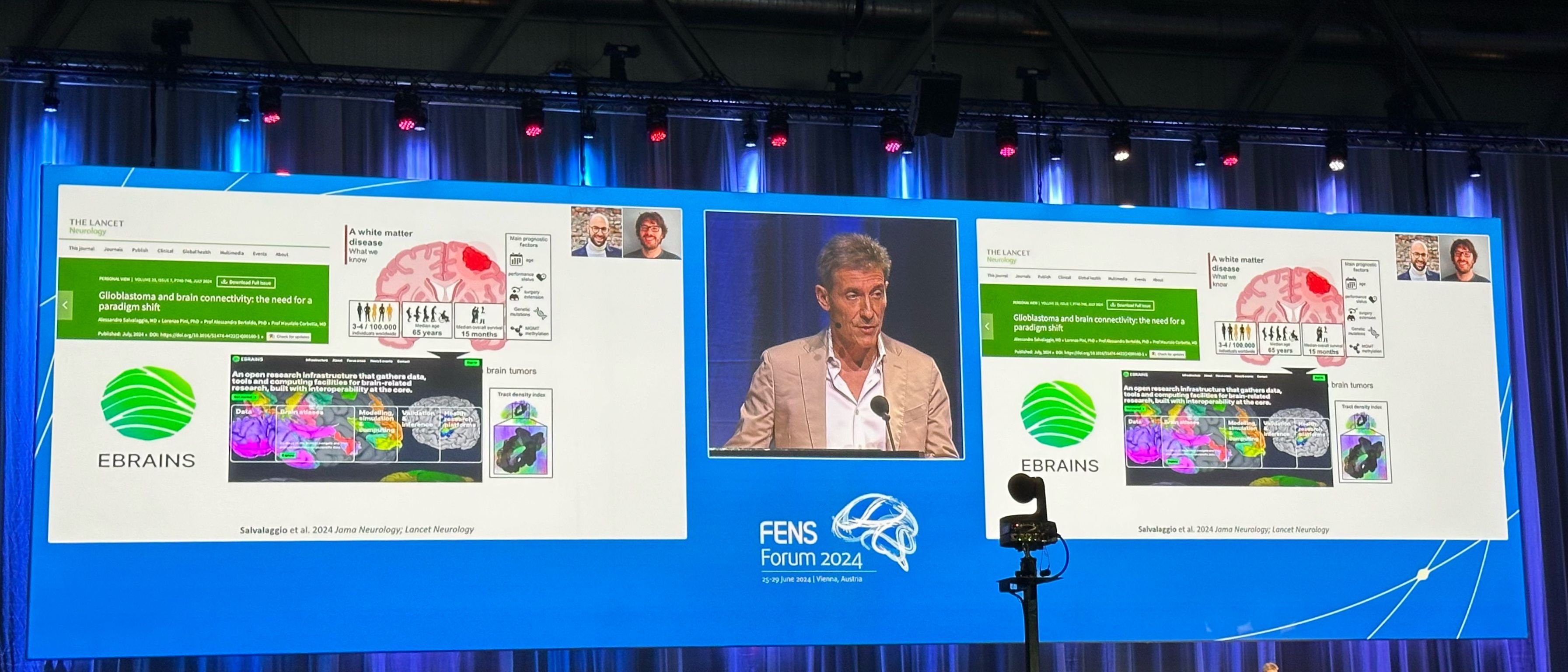
EBRAINS-powered research: Plenary lecture at FENS Forum 2024 discusses the brain’s spontaneous activity

Prof. Maurizio Corbetta presented a plenary lecture at the FENS Forum 2024 on the topic of spontaneous brain activity.
During this talk, Prof. Corbetta presented data about spontaneous activity (the activity produced in the brain even at rest and without stimulus input, and which consumes most of the brain’s energy) and its role in shaping the structural and functional organisation of the brain. He proposed that spontaneous activity plays a “representation” role, replaying common patterns of activity related to the environment, actions, the body, and cognition.
This replay function optimises internal generative models at rest; these are models of our environment that we use to predict sensory data. The replay function also serves as a prior to facilitate behaviour during perception and action.
Lesions and degenerative pathology can damage patterns of spontaneous activity across the brain, explained Prof. Corbetta. In addition, normalisation of these patterns is associated with behavioural improvements, making them a target for rehabilitation and neuromodulation treatment.
Read more:
Researchers at FENS Forum meet EBRAINS during networking event
This edition of the FENS Forum started on Tuesday, June 25, in Vienna, with an exciting programme for over 7,000 attendees. The Federation European of Neuroscience Societies (FENS) currently represents 40 neuroscience societies and more than 22,000 member scientists. The biennial FENS Forum is Europe’s largest neuroscience congress, covering all areas of neuroscience from basic to translational research.
EBRAINS was present at the Forum with a series of activities, including a booth, two networking events, several posters showcasing research enabled by EBRAINS and lectures.
Read more:
FENS Forum 2024 starts in Vienna – check out EBRAINS activities during the conference
A new EBRAINS large-scale brain scanning endeavour is being coordinated in Padua
EBRAINS importance for cancer neuroscience highlighted in The Lancet Neurology


